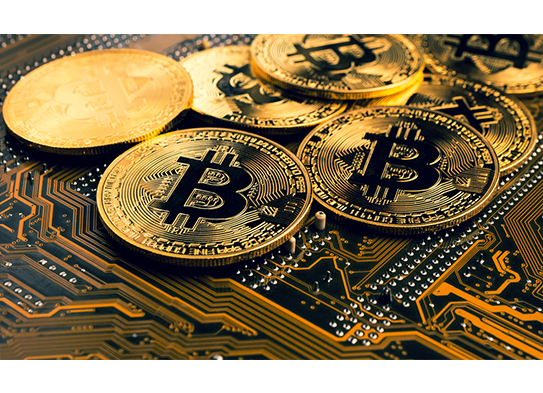Trade Global Markets With Confidence
Access advanced trading tools for Forex, Cryptocurrencies, Commodities, Indices, and more with competitive spreads and lightning-fast execution.
Platform Features
Why Trade With Us
Everything you need for successful trading
Trading Tools
Plan your trades effectively with our wide range of free professional trading tools
Trading Products
Diverse opportunities to optimize your trading portfolio across multiple markets
Trading Platforms
Powerful platforms to suit all trading styles and needs on any device
Funding Methods
Multiple quick, easy and secure methods to fund your trading account
Market Analysis & Insights
Stay ahead with real-time market data, AI-powered insights, and expert analysis
Live Market Overview
Expert Market Analysis
Daily Market Updates
Receive daily market analysis directly to your inbox. Our team of expert analysts provide actionable insights on market trends, price movements, and trading opportunities across all major asset classes.
Premium Trading Tools
Access advanced trading tools designed for all experience levels. Our platform offers customizable solutions to meet diverse trading needs and styles, with multi-language support for international traders.
Funds Protection
Your security is our priority. We provide industry-leading insurance protection for client funds up to $1,000,000, ensuring your investments are protected against unforeseen circumstances.
Diverse Trading Products
Access global markets with competitive conditions
Forex
Trade 70+ major, minor & exotic currency pairs with competitive spreads and conditions
Explore ForexEnergies
Discover opportunities on UK & US Crude Oil as well as Natural Gas with tight spreads
Explore EnergiesIndices
Trade major and minor Index CFDs from around the globe with competitive conditions
Explore IndicesCryptocurrency Trading
Trade the world's most popular digital assets with competitive spreads and advanced tools

Bitcoin
Bitcoin is a decentralized digital currency without a central bank or administrator, allowing peer-to-peer transactions without intermediaries on the blockchain network.

Ethereum
Ethereum is a decentralized, open-source blockchain with smart contract functionality. After Bitcoin, it is the largest cryptocurrency by market capitalization and most actively used blockchain.
Ripple
Ripple is a real-time gross settlement system, currency exchange and remittance network created by Ripple Labs. It uses XRP as its native cryptocurrency to facilitate fast, low-cost international transactions.
Cardano
Cardano is a proof-of-stake blockchain platform created by Ethereum co-founder Charles Hoskinson. It aims to be more scalable, sustainable, and interoperable than other blockchain platforms.
Learn From Market Experts
Discover everything you need to know about cryptocurrency trading, from fundamentals to advanced strategies.
About Bitcoin
Bitcoin (â‚¿) is a decentralized digital currency that operates without a central authority. Transactions are verified by network nodes through cryptography and recorded on a public distributed ledger called a blockchain. Created in 2008 by an unknown person or group using the name Satoshi Nakamoto, Bitcoin pioneered the concept of cryptocurrencies.
Tighter Spreads. Faster Execution.
Experience institutional-grade trading conditions designed for professional traders
Premium Trading Conditions
-
Ultra-low spreads from 0.0 pips on major pairs
-
Lightning-fast execution from NY4 server facility with minimal slippage
-
Top-tier liquidity and market-leading pricing 24/5
-
No dealing desk and no requotes, ever
Live Market Overview
Copy Professional Traders
Let experienced traders do the work for you with our advanced copy trading system
Copy 400+ Strategies
Access hundreds of strategies for more than 1000 instruments across 7 asset classes.
Select Top Performers
Use our reporting tools to rank strategies according to performance and select the most suitable for your circumstances.
Stay Protected
The system uses sophisticated calculations to keep your exposure at an optimal level for your account.
Combine Methods
Our integrated platform allows you to combine copying with manual and automated trading, depending on your preferences.
About Us
Grow Vesta has become one of the most reputable brokers in the industry, offering traders CFDs across Forex, Equities, Commodities and Futures. Trading on the Forex market is a legitimate and straightforward way of generating income.
The good news is that you don't have to be a professional trader in order to make money. All you need is the right personality and the right skill set and you can make money trading on foreign exchanges. Grow Vesta lets you trade in the way that best suits you.
Personalized Trading
Do you want to risk a little or a lot? Do you want gains in the short term or are you playing a longer game? Are you a day trader, a swing trader or a scalper?
Complete Control
With the right tools, information and access to all the world's currencies, Grow Vesta puts you in control of the trades you make.
Investment Opportunities
Choose the perfect plan that suits your investment strategy and financial goals
Test
- Principal return on maturity
- Instant Withdrawal
- Professional Charts
- 24/7 Support
- Min: $500
- Max: $2999
Standard plan
- Principal return on maturity
- Instant Withdrawal
- Professional Charts
- 24/7 Support
- Min: $25000
- Max: $100000
Business plan
- Principal return on maturity
- Instant Withdrawal
- Professional Charts
- 24/7 Support
- Min: $100000
- Max: $1000000
Basic Plan
- Principal return on maturity
- Instant Withdrawal
- Professional Charts
- 24/7 Support
- Min: $3000
- Max: $29999
Stock Starter Plan
- Principal return on maturity
- Instant Withdrawal
- Professional Charts
- 24/7 Support
- Min: $100
- Max: $500
Stock Growth Plan
- Principal return on maturity
- Instant Withdrawal
- Professional Charts
- 24/7 Support
- Min: $500
- Max: $2000
Stock Premium Plan
- Principal return on maturity
- Instant Withdrawal
- Professional Charts
- 24/7 Support
- Min: $2000
- Max: $10000
Stock Elite Plan
- Principal return on maturity
- Instant Withdrawal
- Professional Charts
- 24/7 Support
- Min: $10000
- Max: $50000
Crypto Starter Plan
- Principal return on maturity
- Instant Withdrawal
- Professional Charts
- 24/7 Support
- Min: $50
- Max: $300
Crypto Growth Plan
- Principal return on maturity
- Instant Withdrawal
- Professional Charts
- 24/7 Support
- Min: $300
- Max: $1500
Crypto Premium Plan
- Principal return on maturity
- Instant Withdrawal
- Professional Charts
- 24/7 Support
- Min: $1500
- Max: $7500
Crypto Elite Plan
- Principal return on maturity
- Instant Withdrawal
- Professional Charts
- 24/7 Support
- Min: $7500
- Max: $30000
Real Estate Starter Plan
- Principal return on maturity
- Instant Withdrawal
- Professional Charts
- 24/7 Support
- Min: $200
- Max: $1000
Real Estate Growth Plan
- Principal return on maturity
- Instant Withdrawal
- Professional Charts
- 24/7 Support
- Min: $1000
- Max: $5000
Real Estate Premium Plan
- Principal return on maturity
- Instant Withdrawal
- Professional Charts
- 24/7 Support
- Min: $5000
- Max: $25000
Real Estate Elite Plan
- Principal return on maturity
- Instant Withdrawal
- Professional Charts
- 24/7 Support
- Min: $25000
- Max: $100000
Beginner
- Principal return on maturity
- Instant Withdrawal
- Professional Charts
- 24/7 Support
- Min: $500
- Max: $1000
Need a custom plan?
Our team can create tailored investment solutions for institutional clients and high-net-worth individuals.
STAY UP TO DATE WITH OUR EXPERTS
Our local and international teams are here to support you on a 24/5 basis in more than 20 languages, while our wide range of payment methods gives you greater flexibility when it comes to deposits and withdrawals.
Experience More Than Trading
Our success is centred around a number of core values. They include providing competitive brokerage fees through tight spreads, ensuring lightning-fast execution, access to advanced trading platforms with a wide range of products, and exceptional customer service.
Advanced Trading Tools
Our platform provides everything you need for successful trading in one powerful interface
Reliable Execution
Featuring the market's sharpest execution, Grow Vesta cTrader fills your orders in milliseconds without any requotes or price manipulation.
Intelligent Analysis
Make informed decisions with smart market analysis tools, Live Sentiment data and in-platform market insights from Trading Central.
Transparent Reporting
Access transaction statistics, equity charts and detailed history of your deals for a crystal clear understanding of your performance.
Intuitive Interface
Easy to use and navigate, Grow Vesta cTrader was built with real traders' needs in mind. Trade with Grow Vesta cTrader and experience its distinct advantage.
Why Grow Vesta Is One of the World's Most Trusted Brands
Experience the reliability and security that our global clients have come to trust
Real-Time Market Analysis
Our Trusted Reputation
-
Globally Regulated
Operating under strict financial regulations to ensure maximum security for your assets
-
40+ International Awards
Recognition for excellence in trading services, platform technology and customer support
-
24/7 Multilingual Support
Expert assistance available around the clock in multiple languages
-
Segregated Client Funds
Your investments are kept in separate accounts for maximum security
-
Personal Account Managers
Dedicated professionals to guide your trading journey
How It Works
Get started with trading in three simple steps
Deposit
Open real account and add funds. We work with more than 20 payment systems for your convenience.
Trade
Trade any of 100 assets and stocks. Use technical analysis and trade the news for better results.
Withdraw
Get funds easily to your bank card or e-wallet with our fast and secure withdrawal process.
Trade What You Want, When You Want
Experience unlimited trading possibilities with our comprehensive platform

Competitive commission structure for all traders
Premium Trading Experience
One of the primary goals of Grow Vesta is to provide the best product in the market. Our relationships with leading tier one financial institutions mean deep liquidity and tighter spreads for Forex traders.
Trade Forex, Indices, Shares & Commodities
Access global markets 24 hours / 7 days
Multilingual customer support
Trade on the go on our mobile apps
Start Trading with Grow Vesta
Everything you need for successful trading in one platform
Market Analysis
- • Daily Market Analysis
- • Weekly Live Webinars
- • Live Q & A Sessions
- • Trading Strategy Support
Award-Winning Broker
- • 42+ Industry Awards
- • Top 100 Companies
- • Best Client Funds Security Global
- • Best Forex News & Analysis Provider
Investment Options
- • BA Copy - How it Works
- • Become a Follower
- • PAMM Ranking
- • Become an Investor
Client Testimonials
Hear from our satisfied clients who have achieved impressive results with our platform
Since I started using Grow Vesta, I have been earning like never before. You guys have the best signals.

Malcom47
Verified Trader
I already got more than $200,000 within a month investing with Grow Vesta. Will again invest soon.

Christy
Elite Investor
I was able to earn additional $30,000 to my profit. It's amazing, you guys are the best, keep it up.

Linday8
Professional Trader
This was a very easy process and I received my funds quickly as I needed them! Highly recommend Grow Vesta.

Crian
Active Trader
I rate Grow Vesta five stars because of the service, you register online, upload ID and you deposit and withdraw after trades. This is so lovely.

Claudia
Satisfied Investor
I am very pleased with the customer service. Also online service is great and easy thank you Grow Vesta team.

Jenny
Premium Member
I'm happy, that in difficult times there are people that will support you and help you make more money, thank you Grow Vesta for giving me a chance.

Mike
Regular Investor
I've invested with Grow Vesta several times, always paid back on time. The entire trade process is complete in just a few days. Very impressed and satisfied.

Kathy
Long-term Client







